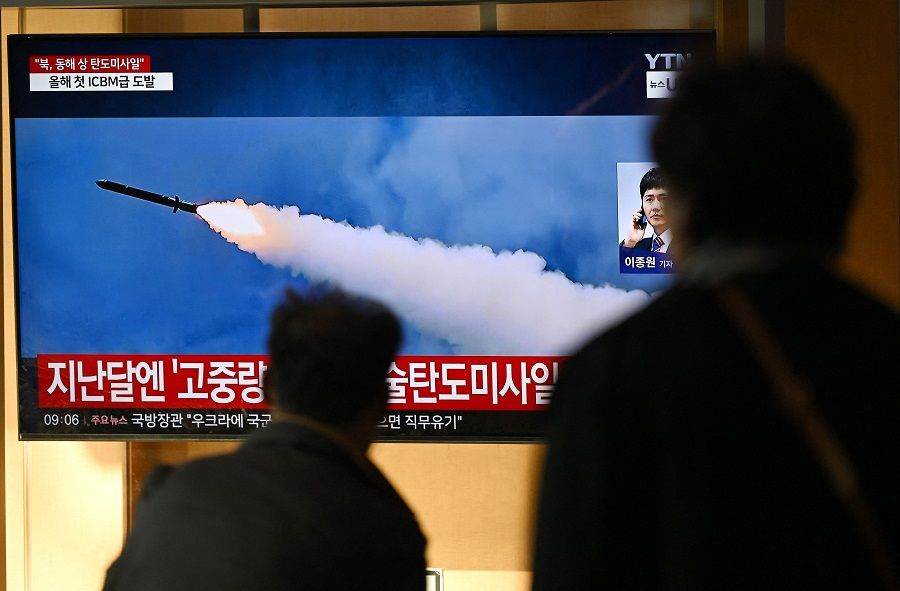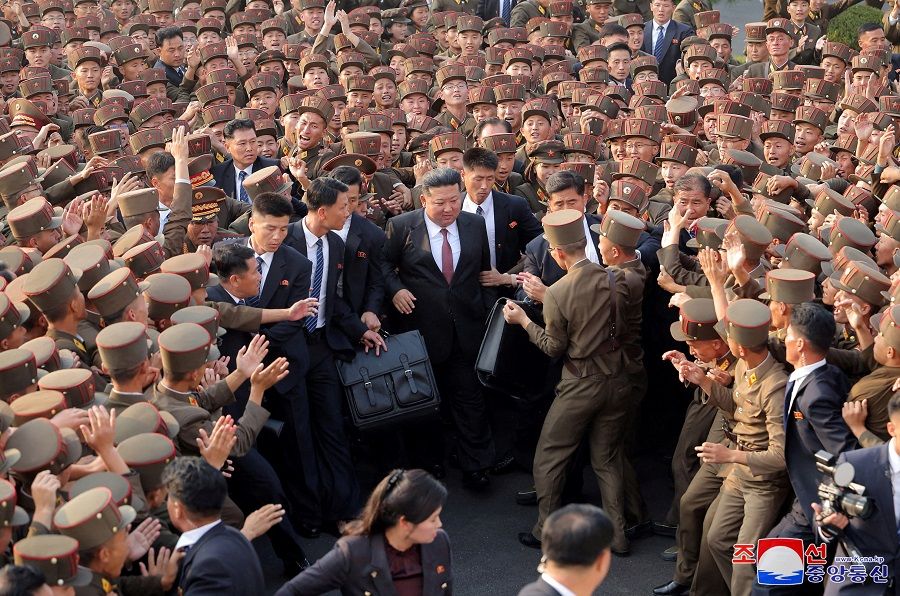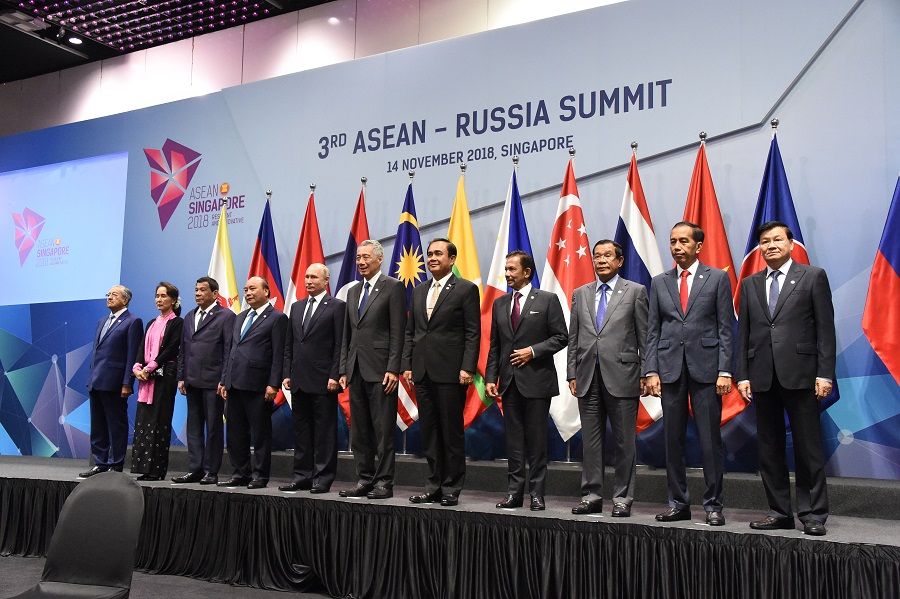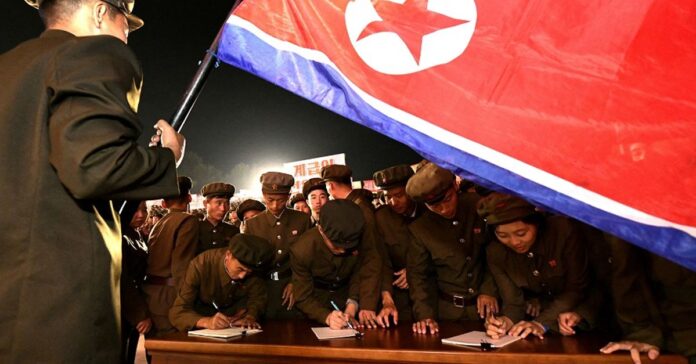The arrival of thousands of North Korean troops in Russia represents a serious escalation of the Russia-Ukraine War. Southeast Asian countries should be concerned. They can take action to enforce the sanctions regime against North Korea.
Should Southeast Asian countries be worried that North Korea has sent up to 10,000 troops to Russia?
Clearly, they should, for in today’s globalised world, a change in the security dynamics of one region can have deleterious effects on other regions.
The deployment of North Korean troops to Russia underscores this reality, as it has not only raised tensions on the Korean peninsula but also threatens to prolong the Russia-Ukraine War. Neither bodes well for Southeast Asia and ASEAN’s efforts to promote peace and stability in the Indo-Pacific.
How has North Korea’s monumental decision to become a co-belligerent in the war impacted security in Northeast Asia?
South Korea, the US and Japan have all expressed alarm that in return for North Korean military assistance (which in addition to troops also includes short-range ballistic missiles and millions of artillery shells), Russia is supplying the impoverished regime with food, oil and financial assistance.
China unlikely to put pressure on North Korea or Russia
More worryingly, Moscow appears to be providing technological know-how to advance Pyongyang’s missile, satellite and submarine programmes. North Korean troops could also gain valuable combat experience if they are sent into battle against Ukrainian forces.
China has feigned ambivalence about closer Russia-North Korea ties, but it is discomfited by its loss of influence over Pyongyang to Moscow and the prospects of a reinvigorated North Korean nuclear weapons programme.

Russia’s quid pro quo not only violates United Nations sanctions. It also bolsters North Korea’s nuclear weapons programme, allowing it to threaten South Korea, Japan and potentially the US mainland.
China has feigned ambivalence about closer Russia-North Korea ties, but it is discomfited by its loss of influence over Pyongyang to Moscow and the prospects of a reinvigorated North Korean nuclear weapons programme. Nevertheless, it is hard to see Beijing putting pressure on either country to reduce their military cooperation, further straining US-China relations.
As a result, tensions between the US, South Korea and Japan on the one hand and North Korea, Russia and China on the other are trending upwards.
Russia’s support for North Korea is a triple whammy in that it undermines all of ASEAN’s desired outcomes: it escalates tensions on the Korean peninsula, violates UN sanctions and undercuts nuclear non-proliferation efforts.
Except for Pyongyang, these countries are all key dialogue partners of ASEAN, and friction among them could weaken ASEAN-led security forums such as the East Asia Summit and the ASEAN Defence Ministers’ Meeting Plus.
ASEAN has long been concerned about the situation on the Korean Peninsula, and the potential for war between the two Koreas, a conflict that would almost certainly drag in the US and China in support of their respective allies.
At the ASEAN summit in Laos last month, for instance, the chairman’s final statement expressed “grave concern” at North Korea’s recent missile tests. The statement insisted Pyongyang fully comply with United Nations (UN) resolutions and called on all parties to work towards the denuclearisation of the Korean Peninsula.
Russia’s support for North Korea is a triple whammy in that it undermines all of ASEAN’s desired outcomes: it escalates tensions on the Korean peninsula, violates UN sanctions and undercuts nuclear non-proliferation efforts.

Stability on the Korean peninsula aside, the arrival of North Korean troops in Russia threatens to worsen and prolong the conflict in Ukraine.
Ten thousand men is not a huge number, and the inexperienced troops could be quickly churned up in the Russian meat grinder that is claiming an estimated 1,000 Russian troops per day. Some of the North Korean troops may take the opportunity to desert.
But North Korea has pledged to support Russia until it achieves victory in Ukraine, and could send many more troops.
If the North Koreans do start fighting Ukrainian forces, Seoul has warned that “all possible scenarios are under consideration”, including arming Ukraine with lethal weaponry. The US has said it might lift restrictions on Kyiv using US-supplied arms to launch attacks inside Russia, and that the North Koreans would be legitimate targets.
ASEAN’s reserved stance
A prolongation of the Russia-Ukraine War would not be good for Southeast Asia. The conflict has already disrupted global supply chains and increased food and energy prices, all of which have raised the cost of living in the region.
According to ISEAS’s 2024 annual survey of elite opinion, the war in Europe remains the region’s third most serious geopolitical concern.
The ASEAN and its ten member states have so far remained tight-lipped about the arrival of North Korean troops in Russia.
Their silence reinforces the impression that regional states have grown weary of the conflict and do not want it to stand in the way of improved relations with Russia and joining BRICS. Moreover, the conflict in Gaza has had much more resonance in Southeast Asia, particularly in the Muslim-majority states.
Any attempt by ASEAN to try and persuade Beijing to use its influence with Moscow and Pyongyang to end their military relationship also seems destined to fail. China has no interest in seeing Russia lose in Ukraine.

Given the implications for regional security, ASEAN should do something, but as always its options are limited.
Clearly it is too much to expect ASEAN to suspend its Dialogue Partnership with Russia, or disinvite North Korea from the ASEAN Regional Forum. Both options would be deemed too confrontational by the member states.
The usual practice of ASEAN issuing a statement of “grave concern” and calling for the withdrawal of North Korean troops would have no impact on decision making in Moscow and Pyongyang, as both countries believe they are in an existential struggle with the US and its allies.
Indonesia has good relations with both Russia and North Korea, but mediation efforts by its new globe-trotting president, Prabowo Subianto, looks like a non-starter. His Ukraine Peace Plan — which called for a demilitarised zone and a UN referendum —fell flat.
Any attempt by ASEAN to try and persuade Beijing to use its influence with Moscow and Pyongyang to end their military relationship also seems destined to fail. China has no interest in seeing Russia lose in Ukraine.
But there are at least two practical measures Southeast Asian countries could take.
The first would be to tighten their enforcement of UN sanctions against North Korea, which some regional states have not always strictly observed in the past.
By helping strengthen the UN sanctions regime against North Korea, Southeast Asia could send a signal to both Pyongyang and Moscow that it disapproves of their military cooperation against Ukraine and the negative fallout on security in the Indo-Pacific.
This article was first published in Fulcrum, ISEAS – Yusof Ishak Institute’s blogsite.

